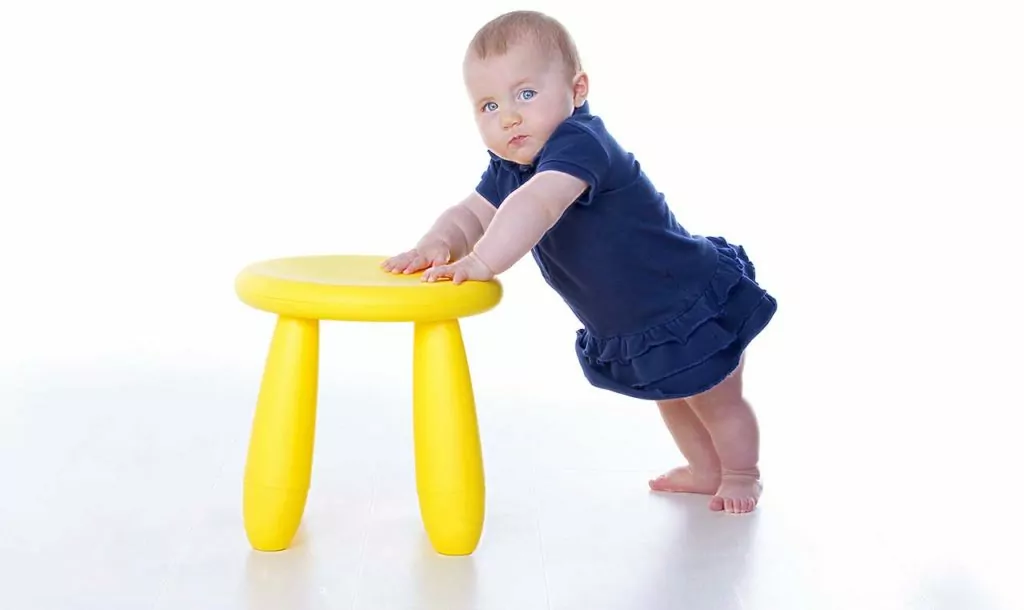“I get to help bake bread!” “Jason, can I read to you while you paint?” “Let’s invite somebody over today. We can make cream puffs.” Another day has begun. In our ‘school’ every day is a new adventure and the children plan their days as much as I do. It’s been called “delight-directed learning,” and we are enthusiastic advocates of this approach to home-education. The basic idea is to find out what interests your child has, and then to guide him to useful resources and experiences so he becomes an “expert in his field”. Because we are not bound to a curriculum, we can use whatever books and resources we believe will be helpful and they can work at the pace which allows them to absorb the subject to the highest degree. Another advantage is that we can wait until our children are ready before teaching them new concepts, and we found this especially beneficial in teaching our son to read. Not everyone follows this approach. In 1997, there were over 6000 families home-educating in the province of Alberta, and each family chose the methods which were best for their children. Many home-educating parents follow a curriculum that provides daily lesson plans, workbooks and textbooks. They like the structure this provides and need the assurance that everything is being covered. Even so, they usually find that because one-on-one teaching is so effective, they can finish all the bookwork in the morning and use the afternoons to pursue other things.
What Should They Be Taught?
“But how do you know that your children are learning everything they need to know for adulthood??!” This is a question which we are frequently asked. It’s true that they won’t know everything by the time they turn eighteen, but then again, who does? Education should prepare children for a lifetime of learning, and the best thing we, as parents, can do when our children are young, is instill in them a love of learning and teach them how to communicate effectively, to write well, to be respectful and self-disciplined. These are the kinds of things young people need in the world, and if they don’t know who the second president of the United States was, they’ll know where to find the answer if they need it! Not that I’m downplaying the importance of history – our children need to know that there was life before they came along!
We believe that the most important thing our children need to be trained in is good character. Developing patience, perseverance, diligence, obedience, generosity, self-control, discernment, resourcefulness, orderliness, compassion, deference, and a host of other qualities is a life-long pursuit which is best begun when our children are young. Nobody has a greater interest in our children’s character development than we parents do, and nobody has a greater motivation either – we have to live with them! Here’s a quick quiz for you: what do Winston Churchill, Alexander Graham Bell, Albert Einstein, the Wright Brothers, Philip Melanchthon, Leonardo da Vinci, Abraham Lincoln, Charles Dickens, and John Wesley have in common? They were all home-educated! I’m not saying that every home-educated child will grow up to be a genius, believe me, but I was very interested to read about these famous home-educated people, and I wonder what curriculum (or lack of it) they used! So how were we introduced to the concept of home-education? A friend of ours, who knew that we were looking into education options, called me up and said, “I heard this guy on the radio talking about home-schooling. It sounds kind of interesting; here’s his phone number.” And that was the beginning of a whirlwind of phone calls and questions, because this was only two months before our eldest was to start school. We decided to take the plunge and try it for a year, since kindergarten wasn’t compulsory, and if it didn’t work out we could put her in school for grade one. Instead, it has turned out to be a great source of joy for us to see our children grow and mature, to talk with them often, to have the best hours of the day with them, and to guide them in the ways of the Lord. And our children have the freedom to pursue their interests, to spend as much time as they want on what they are working on, and to be best friends with each other!
What About Socialization?
This is another thing we are often questioned about. What is “socialization,” anyway? Is it not learning how to interact appropriately with others of all ages, having good manners and good habits, and behaving properly? These can all be learned very effectively in the setting of a family and in spending time with friends in the church and neighborhood. Peer pressure is avoided and they are free to be themselves and grow up slowly!
So what do our kids do all day? We have three children: Jessica (12), Michelle (9), and Jason (8). Jessica does a lot of reading, Michelle is a craft enthusiast, and Jason plays with Lego a lot. They spend time together outside and get in each other’s way occasionally. They have chores to do every day (dishes are a favorite), but a lot of their time is their own. Every so often, I say the word “math” and everyone dives for cover. Unfortunately for them, some things just have to be done, and times tables, borrowing and carrying, and fractions have all had their turn on the table. Spelling, handwriting, and phonics are other non-options. But then there are social and science topics that are theirs to choose. Middle Ages, Australia, bears, South America, seals, tigers, and beavers have all been covered, and the science kit is always available. The little electric circuit with a car wired in is fun to get out once in a while. Scooping creatures out of Grandad’s pond and raising tadpoles has also been exciting for some (dad was unimpressed!). We are blessed in Alberta to have very reasonable home-school regulations that allow us the freedom to choose our own curriculum and teaching methods. We are required to register with a school board in the province. Various options are available to fulfill this requirement. The school board keeps records of our children’s progress and assigns a facilitator who visits twice a year. They provide tests (government achievement tests, Canadian Test of Basic Skills, and others) if the parents want to make use of these. The board also provides funding for supplies (up to $510 per child per year upon sending in receipts, starting in Grade 1), and group lessons. Art supplies, books, and educational games are all covered by this funding.
Where’s Your Education Degree?
“But you’re not qualified to teach your children!” This is a misconception that holds many parents back from home-educating their own children, but studies have shown that even high school dropouts can effectively teach their children. All the parents need is to be literate and to have a love and concern for the overall development of the children that God has entrusted to them. It’s true we are not government certified teachers, and it’s true we’re not experts on all the topics our kids ask us questions about, but some of the most rewarding experiences we have with our children are when we are learning together with them. There are always going to be things that we don’t know, but we can show them where to find the answers, and let them discover things for themselves. Books, other people, educational videos, and field trips have been wonderful sources of information for us. We visit the library frequently and request books on topics the children are interested in. Setting an example of enthusiasm for learning is much more of a motivation for our children than trying to give them the impression that we know it all!
We are members of a Christian support group in our city consisting of over one hundred families. We meet once per month to exchange ideas, hear about new opportunities, and use the library that belongs to the group. Each year a science fair is organized where the children can do a project and explain it to others. A field trip committee organizes various outings which families can go on together. Some of our favorites have been the John Walter Museum, Safety City, voyageur canoeing, and the Ukrainian Pioneer Village. These field trips are an opportunity to meet with other home-educating families. In the spring one of the families in the support group organized a track and field day, which was great fun! We try to take advantage of opportunities which we feel will advance the academic, social, and character development of our children.
On to University
Another query that home-educators often hear is “What if they want to go on to college or university?” We are not experts on this, as our oldest is only in grade seven at the moment, but from information which we have gleaned from meetings, conferences, and home-school families with older children, most colleges and universities have become much more open to the “home-school graduate” in the last five or ten years. Applicants from home-school families are not as rare as they once were, and for some colleges the writing of standardized equivalency tests is all that is necessary. For others, the Math and English Departmental exams must be written. In most cases though, it is recommended that students meet with the registrar ahead of time (in grade ten or eleven) to discuss options. It is also possible to qualify as a “mature student” upon reaching the age specified by the college (sometimes as low as 16 if the student has been out of school for one year).
Another option students have to learn a trade is apprenticeship. This idea has been growing rapidly in home-school circles as it allows parents to have input into who their child’s “teacher” will be. It is usually possible to find a Christian individual who does just what your young person wants to do, and most would be glad to have an assistant who works for free in exchange for being taught the necessary skills. This is just one of the ways that apprenticeship could work. Opportunities abound for motivated young people!
As home-educators, we are often told that our children are naive. I must confess when we hear this we are encouraged. Do we really want them to be “worldly-wise,” aware of all that goes on in the world around them? Their young minds are not equipped to deal with that kind of information. Should we talk to them about the evil practices of the world so that we can explain why they are wrong? That isn’t right. Romans 16:19 says, “I would have you wise unto that which is good, and simple concerning evil.” It is our duty as parents to shield our children from wrong influences and ideas. They will hear about it soon enough when they are older, and then they will be better able to deal with it and to stand firm in the faith they were brought up in.
We are thankful that we heard about home education when we did. Our children are a gift from our Heavenly Father, and we treasure every day we have with them – they will be grown before we know it! Home education is a wonderful way to stay close to our children, to know what they are learning, and to guide them in the ways of the Lord. The primary responsibility of raising and educating children rests with their parents, and we have chosen to fulfill that responsibility ourselves instead of delegating it to others. It has become a way of life for us, and we are grateful for the opportunity to teach our children at home!












